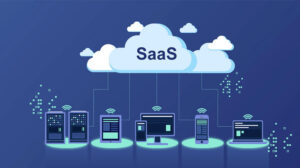Why go paperless at work? For many of us, dealing with paperwork is simply just part of the job. Forms have to be filled out, distributed and filed, and the stacks of paper around the office never quite seem to go away. After all, a typical office worker will use approximately 10,000 sheets of paper in an average year, according to the Minnesota Pollution Control Agency.
This endless stream of documents and files may seem like a nuisance – or just a reality of the workplace – but a new study found that paperwork may be weighing down many office workers across the globe. What this new research showed was that organizations need to start implementing critical tools like online fax solutions that allow them to go paperless, otherwise they risk burning out employees and causing them to flee to competitors.
Breaking down the results of the survey
The online survey, conducted and produced by research firm Edelman Berland on behalf of Adobe, polled over 5,000 workers from five different countries located on three separate continents. What they found is that when it comes to paperwork, more often than not employees – no matter where they are or what industry they work in – have a decidedly negative view of it:
- 83 percent of respondents said that old, staid ways of working with documents inhibited their productivity, and 49 percent said that it prevented them from doing their jobs to the best of their ability.
- 43 percent admitted to having lost documents or files before, with version control (78 percent) and not being able to find files (82 percent) cited as the most common reasons for losing paperwork.
- Over three-fourths of respondents said their workplace relies on paperwork, despite the problems it causes. In comparison, only 52 percent rely on paper documentation at home.
- 61 percent said they would switch jobs if the new position had less paperwork than their current role, and over 25 percent thought related inefficiencies were holding back their career advancement opportunities.
- The future is not looking bright either, as around half of those polled said they expect to still rely on paper for much of their work in 2020.
“Paperwork is more than a frustration: It’s a bottleneck to getting real work done,” the report noted. It went on to say that “[p]eople have embraced digital formats for other types of content, but they still cling to paper for documents.”
“U.S. workers especially dislike paperwork.”
While the problems related to paperwork are bad across the board, the situation looks especially dire in the United States:
- More than 33 percent of U.S. respondents thought inefficient processes and tasks helped to limit career advancement opportunities.
- 69 percent of Americans polled said they would switch jobs just to eliminate paperwork.
- 56 percent believed that unproductive tasks and workloads prevented them from doing the best work possible.
“This should be a wake-up call to businesses that their productivity is taking a hit and they need to do something about it,” said Kevin Lynch, vice president and general manager of Document Services at Adobe.
What can be done to eliminate the paperwork problem?
If the issues related to paperwork are vast and substantial, then so too should be the solutions needed to address them head on. One option available to organizations is to simply try to do more with paper. For example, financial services firm Citigroup estimated that it could save approximately $700,000 every year by having employees print everything out double-sided, the MPCA reported. While this is nothing to scoff at, it does not address the crux of the problem. Reducing the amount of paper used by the average office worker annually from 10,000 sheets to 5,000 is significant, but it still means that they remain heavily reliant on paper-based processes.
Instead of just investing in a double-sided printer and calling it a day, a more ideal option may be to do away with paper entirely and embrace the cloud. Edelman Berland’s research showed that many people around the world have embraced cloud computing and other digital mediums to store and process everything from photos (64 percent) and music (57 percent) to video content like movies and TV shows (51 percent). With cloud-based tools and processes, office workers can easily access and fill out forms from anywhere, plus it ensures that nothing is ever permanently lost and that documents can be easily filed and sorted.
“Other content types like music and photos – and the ways we interact with them – have moved forward. Why not documents?” Lynch said. “The rise of mobile will exacerbate this document gap even more.”
 Cloud computing can help companies go paperless.
Cloud computing can help companies go paperless.While the cloud can be the paperwork savior office workers worldwide are clamoring for, obstacles to widespread adoption of that technology remain. Not only have many offices simply become dependent on physical forms since it is so ingrained in their processes and workflows, but many places require by law that papers be filed manually. It should come as no surprise that government offices, insurance companies, banks, schools and health care offices were cited by the survey as being the top sources of time-consuming and inefficient paperwork, as all of these places are governed by laws and rules dictating the need for physical paper forms.
How online fax solutions can save the day for workers everywhere
If the dream of a paperless office is ever to be fully realized, then the needs and demands of today’s workers need to be balanced with compliance concerns plus the latest in cloud technology. However, the answer to this conundrum is simple: adopt online fax solutions.
With a cloud-based fax system in place, office workers around the globe can use technologies they are intimately familiar with to send and file paperwork without needing physical forms or worrying about running afoul of regulations. With the ability to fax from the Internet, just about all of the concerns identified in Edelman Berland’s reporting can be done away with once and for all using fax over IP devices.
“Paperwork! It brings to mind filling out unnecessarily complicated forms,” the MPCA noted. “Electronic forms can now make that job easier and more efficient. Businesses that have converted to electronic forms and filing systems have found that it takes less time to both find and process information. This doesn’t mean that electronic forms should replace all paper. In some instances, paper will be the best tool, but most businesses find that reducing their paper use increases their efficiency. Whenever we have fewer sheets of paper in our homes and offices, we spend less time looking for those that are misplaced or lost.”
“Going paperless can help your business save $100,000 or more annually.”
As the survey showed, the stakes are high for offices to go paperless now, as a failure to do so could lead to innumerable inefficiencies or even to many valuable employees leaving the company for good. Plus such a move can lead to big savings, as Tastefully Simple found out. By reducing or eliminating paper forms altogether, the national direct sales company was able to save close to $100,000 annually, the MPCA reported.
To achieve similar savings to what Citigroup and Tastefully Simple saw, keep employees satisfied and make operations run much more smoothly than ever before, organizations in just about every sector imaginable should adopt an online fax solution today. Such a move may not make a very big splash among workers, but it could mean the difference between a firm drowning in paperwork and one that is moving toward a paperless and streamlined future.
Enhance enterprise communication, collaboration and compliance efforts with a proven FoIP solution from FaxCore. Contact FaxCore today to learn more about their ‘Partly-Cloudy’ fax solutions.




